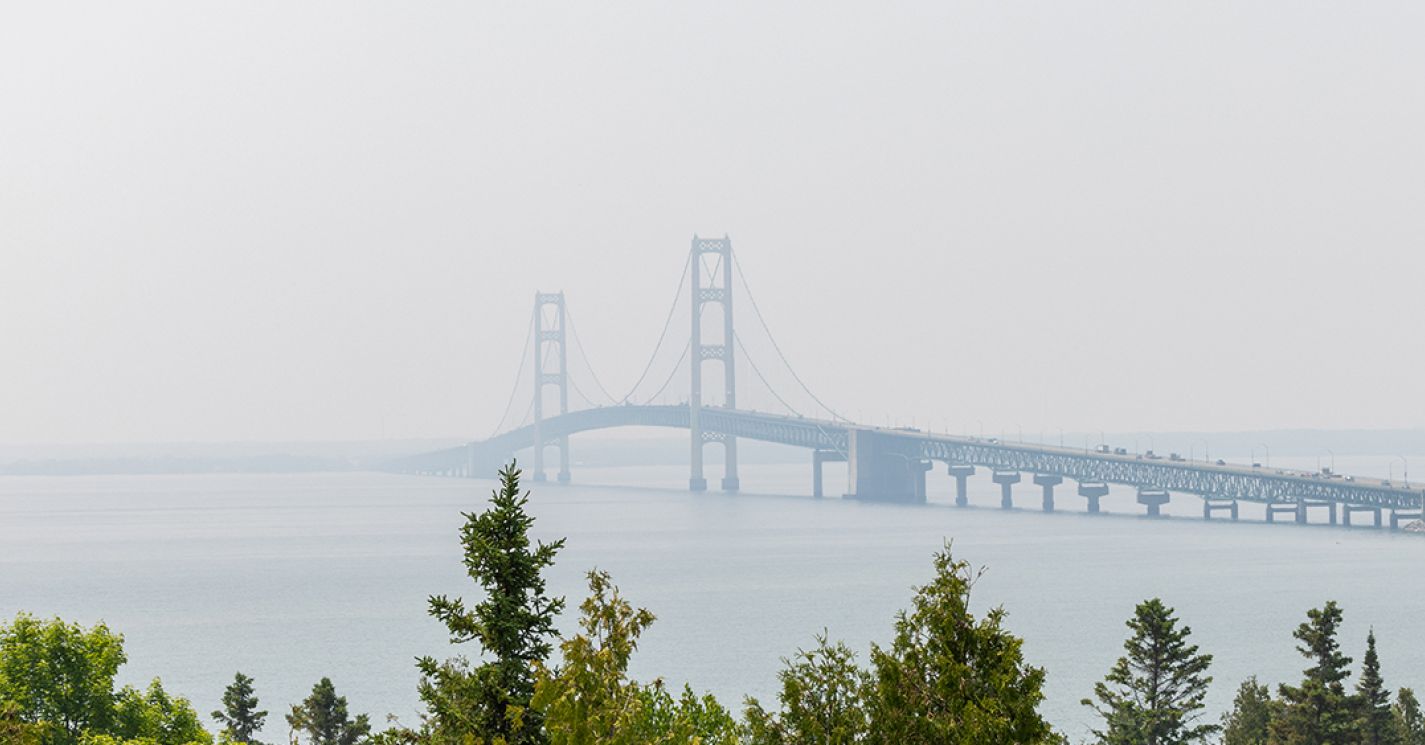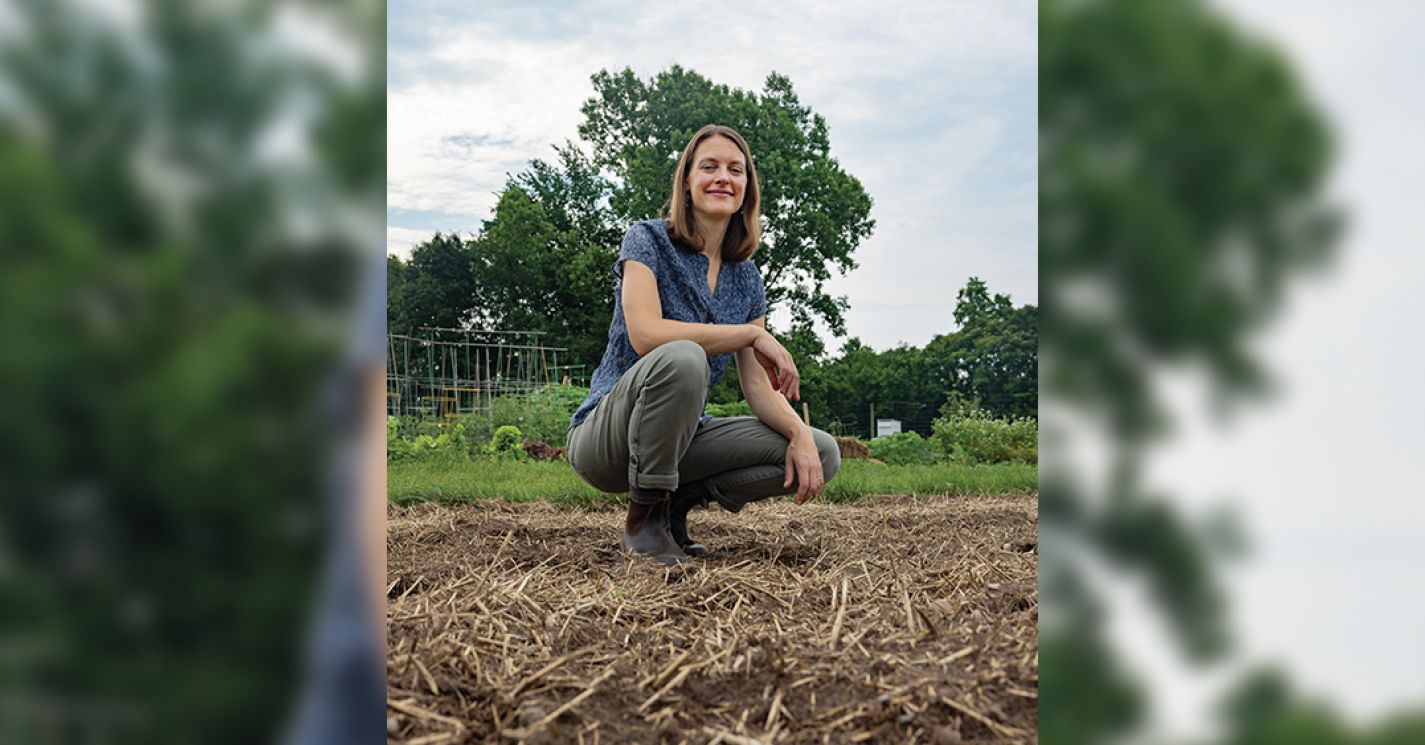The U-M team disembarks on the island of Mikro Ftheno for sampling. The larger island of Anafi is in the background.
Island Biology: “A Lot of Bang for Your Conservation Buck”
By Nayiri Mullinix | Photos by Johannes Foufopoulos
Islands, which comprise just 5.3% of the planet’s land area, hold about 20% of the world’s wildlife and 50% of endangered species. They offer boundless opportunities to inform basic ecological science and applied conservation biology, and are integral to protecting global biodiversity.
“There’s a great need to understand how ecosystems work, because if we are to manage them effectively and protect species, we need to understand how they function, and we can do that more easily on islands,” says University of Michigan School for Environment and Sustainability (SEAS) Associate Professor Johannes Foufopoulos, who studies island biology to identify what endangers resident species and how biodiversity can be protected.
For nearly a decade, Foufopoulos has focused his research on the Aegean Sea and Ionian Sea archipelagos in the northeastern Mediterranean region, which encompass more than 3,000 islands of various sizes and habitats that make them ideal study subjects.
“These islands are a biodiversity hotspot well suited for studies in part because they contain numerous land-bridge islands, which were formerly connected to the mainland and created with the rise in ocean levels,” says Foufopoulos. “They are, therefore, great models for human-caused habitat fragmentation, especially under a changing climate. We know that the Mediterranean basin, already an understudied system, will be heavily impacted by the changing climate, which makes understanding how to manage and protect biodiversity urgent.”
Foufopoulos says that, from a management perspective, islands provide “a lot of bang for your conservation buck” since one can manage or fix things relatively easily. When he first zeroed in on island biology, it was with a focus on lizards, but he says that he soon saw how much more there was to understand and for students to get involved in, such as livestock grazing, fires, seabirds, invasive species and the extreme events that come with climate change.
These islands are a biodiversity hotspot well suited for studies in part because they contain numerous land-bridge islands.”
“I think of nature as a multi-colored rug,” says Foufopoulos. “You start tugging on one string at the edge, and all kinds of things start coming off, but in the rug, all the colors are connected. Lizards don’t live in isolation, they depend on other plant and animal species, and are affected by predators and humans.”
Each summer, Foufopoulos leads a group of SEAS students to the Mediterranean, where they conduct research and add to what he calls an “intentional collage” of projects that build upon each other from year to year with the islands serving as a real-world lab outside of his SEAS lab.
“Over the years, students have conducted a wide range of studies, each different, but connected, with the common thread being the focus on islands,” says Foufopoulos. “Sometimes the work can be contained to one summer, with the remainder done back in Ann Arbor; other times there have been students who have conducted experimental evolution studies, where they introduced lizards onto new islands and then watched them evolve year after year, documenting their adaptations to the condition of the new island.”
Kate Leeson (MS ’24) says she came to SEAS specifically to work with Foufopoulos and that he helped her plan a project that would line up with her interests.
“We spent a lot of time on literature review and deciding what to research, and then I spent the following summer on the islands doing hands-on, intense work that I really enjoyed,” says Leeson.
Leeson’s study was focused on understanding how different species are affected by plastic waste, which is found even on uninhabited islands because seabirds ingest and then regurgitate the plastic on their nesting islands.
While on the islands in Summer 2023, Leeson collected 400 samples—insects, roots and feathers—that she later processed back at SEAS. She looked for signs of oxidative stress, one of the physiologically toxic effects of plastic exposure. Leeson says that islands with more plastic pollution had organisms with higher levels of oxidative stress.
“We expected this finding, but this was the first field study of its kind that looked at natural ecosystems to show that plastic waste has reached the levels necessary to induce these toxic effects.”
She adds that finding out that even uninhabited and remote islands aren’t safe from the effects of plastic waste is news to most scientists and that action should be taken to protect endemic island species that live in a limited area because they have fewer places to move compared to mainland species.
Henry Wallison (MS ’25), who joined the Foufopoulos team in 2023, returned to the Mediterranean last summer to build upon his study that is focused on the grazing activity of goats on inhabited islands.
“Grazing is a big issue because it has a significant impact on local diversity—island areas are bounded and goats can’t spread out the way they would on the mainland, and in the isolated landscapes species can’t repopulate the same way they would on the mainland. So, once an endemic species population is reduced or lost, recovery is not really a given,” says Wallison.
Wallison says the issue is complex since many rely on goats for their livelihoods, but that the islands could benefit from employing restoration methods that he will recommend, which would encourage a more diverse and verdant landscape.
For Angelina Kossoff (MS ’23), whose research focused on understanding the ecological impacts of European rabbits on the islands, the experience of working with Foufopoulos alongside her peers was life-changing.
“This was one of the most incredible experiences of my life,” says Kossoff. “He [Foufopoulos] fosters a community of students that help and care for each other while he points us in the right direction for good research and literature and guides us through it all. I am so grateful for these experiences and everything I learned and how it has influenced my career.”
The wellspring of ecological knowledge is nature, so I have to show students how things are in the real world.”
Foufopoulos says that guiding future ecologists was an intentional pivot in his career.
“The focus on studying islands has been a powerful experience for me and my students. I believe that giving students hands-on experience is good for many reasons. It’s very comfortable and easy to just stay in the classroom and give students clean abstractions of the world, but in reality, the world is messy, complex and ambiguous. The wellspring of ecological knowledge is nature, so I have to show students how things are in the real world,” says Foufopoulos.









